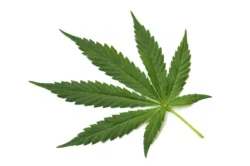Is Kratom a Supplement If It’s Addictive?

You may have heard about an herbal supplement known as kratom. Derived from a Southeast Asian tree, this supplement has sparked controversy over the past few years. The Drug Enforcement Administration (DEA) is still considering how to classify kratom, and the Food and Drug Administration (FDA) has warned consumers not to use it. However, there have been many personal anecdotes about beneficial properties.
With all the conflicting information out there, you may be confused about what kratom really is, what kratom is used for and whether or not it’s addictive. Here is everything you need to know about kratom and its potential for abuse.
What is kratom?
According to the NIDA, “Kratom is a tropical tree (Mitragyna speciosa) native to Southeast Asia, with leaves that contain compounds that can have psychotropic (mind-altering) effects.”
Kratom interacts with the opioid receptors in the brain to produce pleasure, decrease pain and create feelings of sedation, a response similar to that experienced from taking opioids or stimulants. Some users have reported feeling more social, alert and energized from consuming small amounts of kratom, but no matter how little of the substance one consumes, the side effects and risks remain present – including the risk of kratom addiction.
What’s in kratom powder supplements?
Kratom supplements may come as a pill, capsule, powder or dried leaves. People may eat the leaves themselves, smoke them or use them to make an herbal tea.
Kratom supplements are supposed to be just the pure leaves of the tropical tree; however, an FDA lab report found unsafe amounts of lead and nickel in several brands of kratom supplements – enough, in fact, to cause heavy metal poisoning.
Additionally, there was a salmonella outbreak in January 2017 linked to kratom supplements. The CDC could not trace the outbreak to a single brand of kratom, so consumers were warned that contaminated products could still be on the market.
So while the supplements might be advertised as pure, it’s hard to really confirm the safety and purity of the product.
What is kratom used for?
According to certain anecdotal claims, people have reported positive effects of using kratom, such as reducing anxiety, managing pain or even lessening withdrawal symptoms from opioid addiction. However, these claims have very little scientific backing, and further research is needed to determine if these claims are actually viable and if the so-called benefits of kratom are worth the known health risks.
On the other hand, there are a number of documented negative effects from the supplement, including:
- Nausea and vomiting;
- Itching;
- Chills and sweating;
- Constipation;
- Increased urination;
- Dry mouth;
- Weight loss;
- Drowsiness;
- Loss of appetite;
- Dizziness;
- Hallucinations and delusions;
- Seizures.
Additionally, there have even been reports of death involving kratom. While many of these cases also involved additional drugs, or kratom products that were adulterated (did not meet legal manufacturing standards), there has been a documented case of death as a result of pure kratom consumption.
Is kratom legal?
Kratom has not yet been made illegal, and several states have banned it. The DEA is considering a Schedule I classification for kratom, which would make it illegal, but no action has yet been taken. Kratom remains on the DEA Drugs and Chemicals of Concern list.
In 2014, the FDA banned importing or manufacturing kratom as a dietary supplement. However, it’s still available under other labels, such as aromatherapy.
Is kratom addictive?
There are two compounds in kratom, mitragynine and 7-hydroxymitragynine, that affect opioid receptors in the brain. Substances with these effects commonly cause addiction, as the brain’s opioid receptors become hijacked by the synthetic effects of the drugs. There have been cases of people developing a physical dependence on kratom and experiencing unpleasant withdrawal symptoms when they attempted to stop usage.
Why are teens and young adults using kratom?
Since kratom is still legal in most of the U.S., it is easily accessible – even to teens and young adults. Kids may be exposed to the substance by their peers as a recreational drug. Some individuals may try to self-medicate with kratom or keep themselves focused with its stimulant properties.
If you suspect your child is using kratom, it’s important to intervene quickly, since substance use may lead to dependence, as well as open the door to other dangerous drugs. If you are worried, talk to your doctor and consider getting an evaluation if certain signs have you concerned.
Treatment for kratom abuse
If you or a loved one is abusing kratom, addiction treatment can help. This could include talk therapy with a counselor, holistic methods like art therapy and yoga or medication-assisted treatment to help lessen the discomfort of withdrawal.
Whether you have more questions, are actively seeking treatment or just need to gain more information before making a decision about rehab, call 610-644-6464 today or your schedule your appointment with us.








